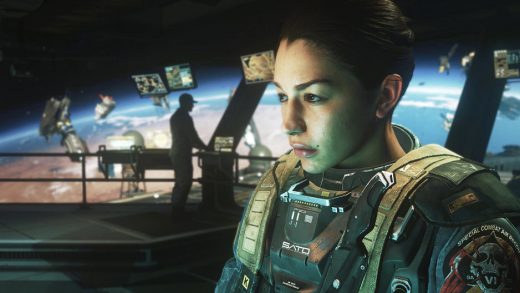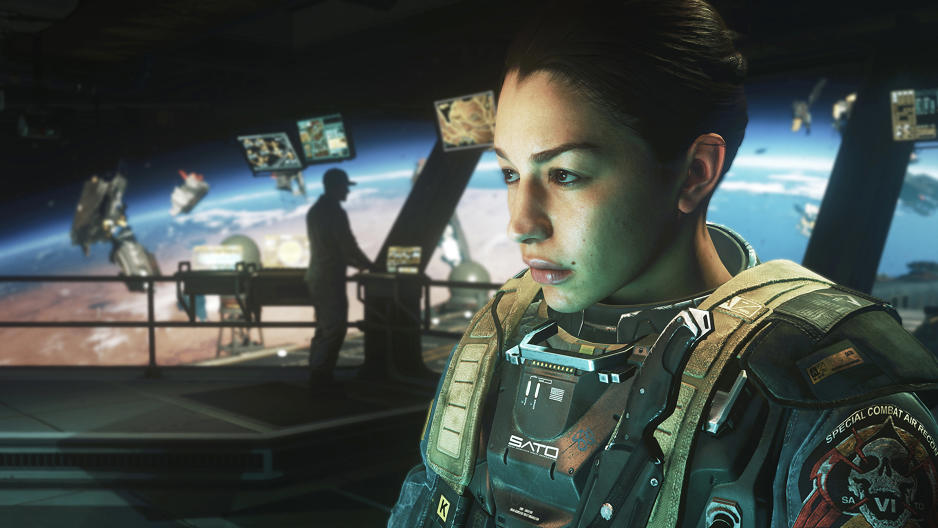How Activision Is Keeping “Call Of Duty” Cutting Edge 13 Years And $15 Billion Later
The near-deafening pulse of electronic base from the Prodigy’s “The Day Is My Enemy” echoed through the massive arena, muffling the screams and cheers of the hundreds amassed for the event. Two massive screens lit up the crowd, displaying images of sci-fi soldiers on alien worlds battling in fierce combat at breakneck speeds. With every explosion, every shot that seemed pulled from the most expensive summer blockbuster Hollywood could produce, the teaming fans—10,000 strong—erupted as if witnesses to some near-future gladiatorial spectacle.
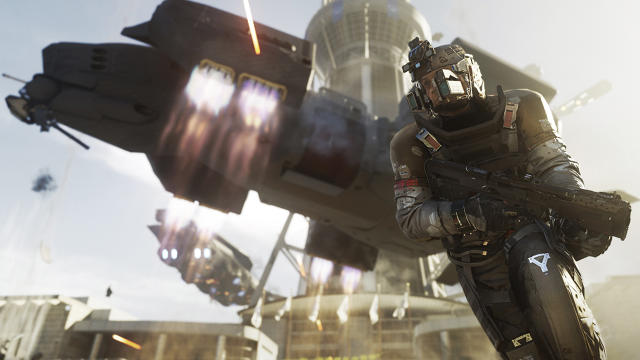
This was not the scene of a star-studded music festival, a Super Bowl or World Series, nor the unveiling of a new Star Wars movie. This was Call of Duty XP 2016 and simply the revealing of a new trailer for Call of Duty: Infinite Warfare, the franchise’s 13th entry in a video game series that dates back to 2003 and which has generated more than $15 billion in sales. Fans traveled from all over the world and paid anywhere from $49 to $199 just to enter the event at the Forum in Los Angeles, getting the chance to be some of the first to get their hands on the new game, to participate in myriad activities from paintball to zip lining, and to watch some of the best eSports athletes in the world compete for a $2 million purse.
If you consider yourself a “non-gamer” and don’t understand what would drive someone to pay money and travel thousands of miles to play a video game—or watch others play—you don’t understand Call of Duty and the multibillion-dollar empire publisher Activision and the games’ developers hold in their hands. This is a fan base that equals and often dwarfs the most die-hard fans of any product, film, or television franchise in the world.
“There aren’t many brands that I think generate this kind of passion,” explained Activision CEO Eric Hirshberg. “It’s easy to almost take for granted the numbers and the sheer size of the audience that we’ve amassed and managed to keep around for all of these years, and when you hear it you almost become numb to it, but when you’re sitting in an audience with close to 10,000 people and looking at the enthusiasm they bring, it’s palpable.”
First, A History Lesson . . .
2003’s Call of Duty (or CoD), designed by game developer Infinity Ward took place during World War II. The game was released at a time when the setting was all the rage with first-person shooting games (First Person Shooters, of FPS for short). The game’s story was a tour of the Soviet, British, and American theaters of the war, with thrilling combat sequences in which players experienced both the thrills and horrors of one of the world’s bloodiest wars in history.
In the years that followed, Call of Duty delivered more heart-pounding action from the front lines of WWII, but in order to keep things fresh but familiar—something the franchise’s fans would say the series has excelled at accomplishing—entries brought players into modern combat situations across the globe, including fictional special forces operations with intricate story lines, ever-evolving and increasingly complicated game elements and aesthetics that continued to improve as technology presented the opportunity to generate more realistic imagery.
Now, 13 years after the first entry, the makers of CoD take their fans beyond the spiral galaxy, giving them a chance to battle in zero G, on space stations, distant planets, city-sized spacecraft and more. It’s another way Activision continues to up the ante and deliver a new experience that is original enough to entice newcomers and familiar enough to satisfy their legion of loyal customers.
“There is a balancing act that we have to strike between making sure that we’re still making the game that everyone knows and loves . . . but also making sure that we’re innovating and giving them a new reason to come back every year,” said Hirshberg. “I think one of secrets to our success has been our willingness to have a wide set of guardrails and to allow our development teams to not be slavish to formulas and to put their best foot forward and to make the game they want to make.”
Activision’s philosophy is to get out of the way of the three studios that develop Call of Duty games on a rotating schedule—Infinity Ward, Treyarch, and Sledgehammer—and give them the creative freedom to execute their vision.
“Those teams all know how to make a great Call of Duty game, they all know the nuances that make Call of Duty feel and play like Call of Duty, but they are all also very different and very passionate and very visionary creative groups in their own right that each have their own style,” he said.
The Secret to Their Success
There’s no one answer to why sports fans love the teams they love, why fans of film and television series are nearly religious in their zealous passions, or why some games rise above the chorus of voices clamoring for consumer dollars and attention from the video game aisle. As with any product that has succeeded in captivating the kind of rabid, unwavering fan base envied by others in the medium, the obvious question is, why Call of Duty?
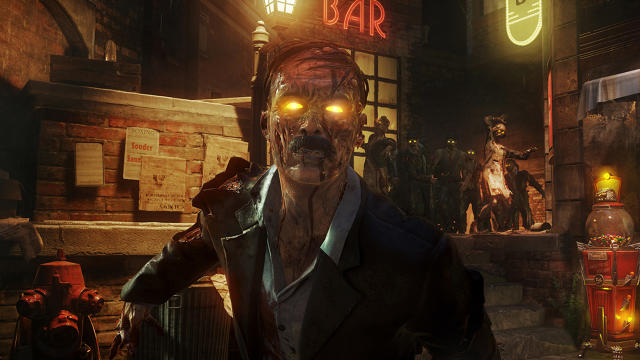
CoD fan and event attendee Nevin, from outside Chicago, spent nearly $200 on his ticket to attend CoD XP, plus airfare, hotel, and a rental car and says he’s spent about $1,500 all in.
“I love the fast-paced action and enthusiasm from the community,” he explained. “I don’t know, there’s just something about Call of Duty.”
Amanda from Cypress, California, who we found wandering the event floor with a friend, is an avid fan and pointed to the game’s community of players, saying, “the fan base is awesome . . . just look around!”
While it’s difficult to pinpoint a single factor that ensures CoD games are constantly in the zeitgeist and one of the top-selling games annually, Hirshberg has a theory.
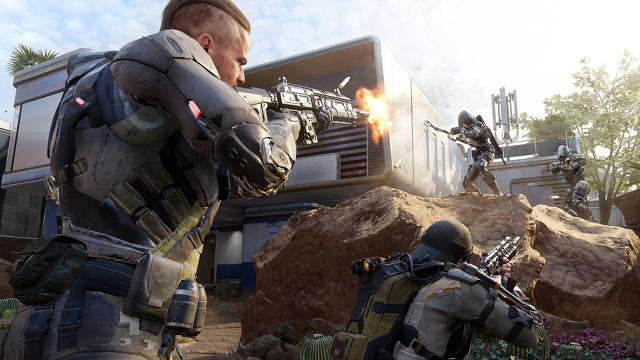
“We’ve always taken the stance that video games should not be treated like some subculture—they should be treated like the epicenter of mainstream popular culture because that’s what they are,” he said. “I think that Call of Duty is one of the games that made that a reality, but it’s also one of the first games that presented itself to the world with that body language, with the confidence of a summer blockbuster movie.”
Certainly video games were legitimized as a mainstream entertainment paradigm long ago and Call of Duty, the Call of Duty XP 2016 events, 10,000 attendees, and the billions of dollars the franchise has generated over the years are evidence that whatever the reason, CoD is a force of nature and shares a coveted position with the most coveted products across all forms of entertainment. And it shows no signs of laying down its guns anytime soon.
Call of Duty: Infinite Warfare will be released November 4.
Fast Company , Read Full Story
(27)

